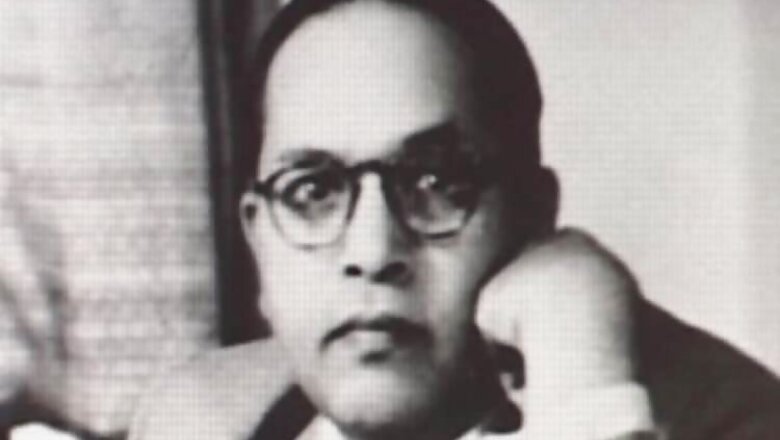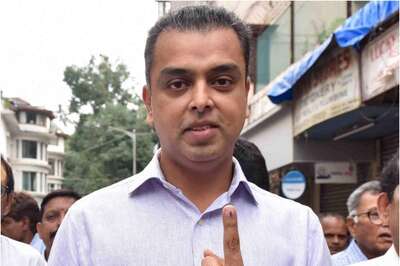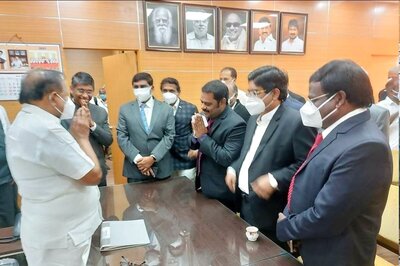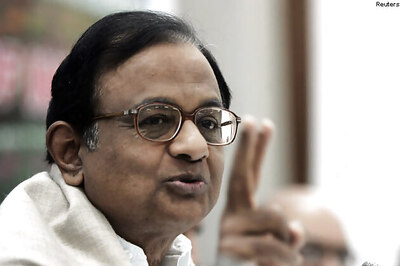
views
Thomas Babington Macaulay, the eldest of the nine children, born in rural Leicestershire on October 25, 1800 to an Abolitionist family, is believed to be the first British who had a firm belief that the future of India depends on Anglo-Saxon model of education, liberal political ideas and representative government. He was proclaimed a genius as a child and awarded an IQ of 180 to 190 by some American Social Scientists in 20th Century. Macaulay accordingly finds a mention in the famous book “The Early Mental Traits of Three Hundred Genius” (Stanford University Press, 1926). He remained a bachelor all his life, died at a relatively young age of 59 and was the finest intellect and already a legend in his lifetime.
Lord Macaulay may not be remembered in the land of his birth but he is still relevant in India because of all the differences he made in the lives of native Indians. As a Law Member to Governor General’s Council in India between 1834 to 1838 and before that as Secretary to Board of Control in London through which the British Crown handled the affairs of East India Company, Lord Macaulay was in a position to make substantial and far reaching changes in the functioning of British Raj in India and leave a legacy behind.
One such legacy is the creation of large section of anglicized Indians who may have been ridiculed as ‘Macaulay’s Children’. But incidentally these also included Gandhi, Nehru and Jinnah who first studied English and British Law, practiced in British Courts and then went on to demand Independence from British on the same Anglo-Saxon humanistic, liberal democratic and egalitarian principles.
Zareer Masani in his book ‘Macaulay- Pioneer of India’s Modernization’ (Random House India, 2012) writes:
“Macaulay rightly anticipated that English would give Indians rapid access to global advances in science, medicine and technology. Time has proved him right. Macaulay also envisaged that English would spread liberal political and economic values in India, eventually making Indians the political equals of their British rulers. And again history proved him right, when Western-educated lawyers led India to Independence as a secular democracy with a parliament modeled on Westminster. Pre-colonial Indian history has no equivalent of the Magna Carta. Without English, India would have found it difficult to adopt the previously unknown concept of the rule of law, as distinct from existing system of arbitrary rule and religion taboos and sanctions. There would have been no judicial system based on the foreign concept of equality before the law. And its lingua franca, there would have been no India as a political unit. The subcontinent would most likely have remained divided between warring regional states, few of which would have been democracies.
The final verdict on Macaulay’s legacy comes from one of India’s greatest historians, KM Pannikar:
“It is the genius of this man, that gives life to modern India as we know it. He was India’s new Manu, the spirit of Modern law incarnate.”
There are certain ideological parallels between Dr Ambedkar and Lord Macaulay other than the fact that both have been portrayed always in western attire and holding a book. Dr Ambedkar also believed that India’s future lies in western education and institutions and not in revivalism. It is not to be forgotten that western liberal political philosophy and education helped Dr Ambedkar to come out of caste oppression so common to Dalits those day and prevalent even now. Dr Ambedkar personifies what Lord Macaulay had envisaged as to kind of transformation the modern scientific and liberal education would bring about in India.
Macaulay’s influence is visible in the drafting of the Fundamental Rights of the Indian Constitution taking the key elements of British Whig Tradition of free speech and equality before law. The same is the incorporation the Indian Civil Services and Judiciary, the institutions created by Macaulay, into the Indian Constitution which serve as State’s instrumentality of enforcing rule of law and equality before law in the country.
Dr. Chandra Bhan, a famous Dalit scholar, in his one of the articles written for ‘India in Transition’ published by Centre for the Advanced Study of India, University of Pennsylvania, 2007 writes:
“Lord Macaulay scripted the Indian Penal Code which made all Indians equal before law. Mainstream Indians therefore, don’t forgive Lord Macaulay. It is testament to the lasting and unforgiving legacy of caste that, from Lord Buddha to Dr Ambedkar, all those who questioned it were despised and discarded. Buddhism virtually disappeared from India and Dr Ambedkar lost elections despite having been the key architect of Independent India’s Constitution. As a matter of fact, Lord Macaulay was fighting a grim battle with the orientalists who saw everything Indian as virtuous-from its indigenous system of education to the caste system. As an abolitionist himself, Lord Macaulay feared an enduring dependence of India on British and argued for modernity, democracy and the science for India”.
The Indian nationalist writers have been more critical of Lord Macaulay than any other British of his time. It is time for us to be honest and make a fresh appraisal of Macaulay’s contribution into the making Indian Constitution no matter how much so ever we despise him. Unlike other British Generals who limited themselves to conquering territories alone, Lord Macaulay was virtually taking the Indian caste system head on. His speech to the British Parliament on 1833 Charter Act as quoted in the above article of Dr Chandra Bhan is a case in point.
“I fully believe that a penal code is better than a severe penal code, the worst of all system was surely that of having a mild code for the Brahmins, who sprang from the head of the Creator, while there was a severe code for the Sudras, who sprang from his feet. India has suffered enough already from the distinction of castes, and from the deeply rooted prejudices which that distinction has engendered.
The above disposition should have placed Lord Macaulay as the first crusader against Brahmanical order based on Manu Smirti. There is also no dispute to the fact that Lord Macaulay was first British to advocate that the native Indians be given higher posts in Company’s service. He continues in the same speech:
“I allude to that wise, benevolent that noble clause which enacts that no native of our Indian empire by reason of his color, his decent, or his religion be incapable of holding office.”
This led to the creation of Indian Civil Services in Charter Act of 1833 and ultimately found a place in the Indian Constitution drafted by Dr Ambedkar. He was also the first to have spoken about Independence for India. Unfortunately, Lord Macaulay being an Englishman was never given that credit for all that by the Indian nationalists. He has been rather demonized for his famous Education Minute of January, 1935. That was probably the most cogent and resounding articulation of the British Imperial Mission. It set out the objectives of building, "a class who may be interpreters between us and the millions whom we govern; a class of persons, Indian in blood and colour, but English in taste, in opinions, in morals, and in intellect."
The new policy based on the draft of Lord Macaulay was approved by the Governor General within a month. Many of us believe that Macaulay was a racist. There cannot be any apology for his concept of “Just Wars” to further the imperial mission of educating and civilizing people. Also there cannot be a justification for subjugating the country for 200 years to teach English liberal democratic values and Rule of Law.
Having said that, there is no denial of the fact that English has been of carrier of the liberal democratic values, equal rights and opportunity that played an important role in confronting cast oppression and religious obscurantism. In the same Minute Lord Macaulay had said that
“it was not the job of the government to bribe students to waste their youth in learning how they are to purify themselves after touching an ass, or what text of Vedas they are to repeat to expiate the crime of killing a goat”.
He was referring to the existing vedic educational system of that time. Even that was not open to all. Dalits were excluded from that education since thousands of years. Lord Macaulay’s vision of English education was universal in character. The today’s constitutional guarantee to the Right of Education has its genesis from that Minute. Many Dalit scholars like Dr. Chandra Bhan hold Lord Macaulay and English language in a very high esteem and rightly so. Dr. Chandra Bhan went on to open a temple of Goddess English at his native place in Uttar Pradesh.
Prof. Narender Yadav in his book ‘Dr Ambedkar’ has quoted that Dr Ambedkar once wrote about democracy:
“Constitutional Morality is not a natural instinct. It has to be cultivated. Democracy in India is only the top dressing on main soil which essentially undemocratic”.
Dr Ambedkar concedes here that the caste system is still in vogue and true democracy is still far away. The same condition persists even today. The origin of struggle against the caste oppression in India dates back to the 19th century by Lord Macaulay who finds in Dr Ambedkar his true political heir to carry forward the struggle. India achieving the hallowed and promised right to political, social and economic equality in real terms to all its citizen through the Constitutional framework can alone be a fitting tribute to the legacy of Lord Macaulay.


















Comments
0 comment